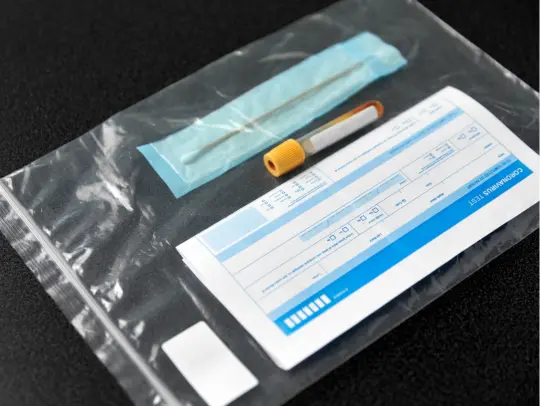
Boosting Fertility: A Comprehensive Guide to Improving Your Chances of Conception
Boost Fertility Naturally: Complete Guide to Getting Pregnant
Fertility is influenced by a complex interplay of factors including genetics, age, overall health, lifestyle choices, and environmental factors. While some aspects like genetics and age cannot be changed, there are numerous evidence-based strategies that can significantly improve your chances of conception. This comprehensive guide explores the most effective ways to optimize fertility naturally, covering everything from nutrition and exercise to stress management and targeted supplementation.
Whether you're just beginning to try for a baby or have been on this journey for some time, implementing these fertility-boosting strategies can help create the optimal conditions for conception. Remember that fertility enhancement is not just about one partner – both individuals in a couple contribute to conception success, making it important for both to focus on optimizing their reproductive health.
Understanding the Foundation of Fertility
Before diving into specific strategies, it's essential to understand what fertility means and how conception occurs. Fertility refers to the natural capability to produce offspring, which depends on the health and function of both the male and female reproductive systems. For conception to occur, several conditions must align perfectly: healthy egg and sperm production, proper hormonal balance, clear fallopian tubes, a receptive uterine environment, and optimal timing of intercourse.
The female reproductive cycle typically lasts 28 days, though normal cycles can range from 21 to 35 days. Understanding your cycle, particularly your ovulation window, is crucial for timing intercourse effectively. Ovulation usually occurs around day 14 of a 28-day cycle, but this can vary significantly between individuals.
Male fertility is primarily determined by sperm health, which includes sperm count, motility (movement), and morphology (shape). Unlike female eggs, which are present from birth, sperm are continuously produced, taking approximately 74 days to fully develop. This means that lifestyle changes can impact sperm quality relatively quickly, typically showing improvements within 2-3 months.
Nutritional Foundations for Fertility
The Fertility Diet: Eating for Conception
Nutrition plays a fundamental role in reproductive health, influencing hormone production, egg quality, sperm health, and overall fertility. A fertility-focused diet emphasizes whole, nutrient-dense foods while minimizing processed foods, excessive sugar, and harmful additives.
Antioxidant-Rich Foods
Blueberries, pomegranates, dark chocolate, colorful vegetables, and green tea help protect eggs and sperm from oxidative damage.
Healthy Fats
Avocados, nuts, seeds, olive oil, and fatty fish provide essential fatty acids crucial for hormone production.
Complex Carbohydrates
Whole grains, quinoa, sweet potatoes, and legumes help maintain stable blood sugar and support hormonal balance.
Lean Proteins
Fish, poultry, eggs, beans, and plant-based proteins provide building blocks for reproductive hormones.
Specific nutrients deserve special attention when trying to conceive. Folate, found in leafy greens, legumes, and fortified grains, is crucial for preventing neural tube defects and supporting early fetal development. Iron from sources like spinach, lean meats, and lentils helps prevent anemia and supports healthy ovulation. Omega-3 fatty acids from fish, walnuts, and flaxseeds promote healthy hormone production and may improve egg quality.
The Mediterranean diet pattern has shown particular promise for fertility enhancement. This eating style emphasizes fruits, vegetables, whole grains, legumes, nuts, olive oil, and fish while limiting red meat and processed foods. Studies have shown that couples following a Mediterranean-style diet have higher conception rates and better IVF success rates.
The Role of Physical Activity in Fertility
Exercise: Finding the Fertility Sweet Spot
Regular physical activity is one of the most powerful tools for enhancing fertility, but the key lies in finding the right balance. Moderate exercise improves circulation, helps maintain a healthy weight, reduces stress, and supports hormonal balance – all crucial factors for optimal fertility.
For women, moderate exercise can help regulate menstrual cycles, improve insulin sensitivity, and reduce the risk of polycystic ovary syndrome (PCOS), a common cause of fertility issues. Activities like brisk walking, swimming, yoga, cycling, and strength training for 30-45 minutes most days of the week provide excellent benefits without overexertion.
However, it's important to avoid excessive high-intensity exercise, which can actually impair fertility by disrupting hormonal balance and menstrual cycles. Elite athletes and women who engage in very intense training often experience irregular periods or amenorrhea, which can significantly impact fertility.
For men, regular exercise improves testosterone levels, sperm quality, and overall reproductive health. Studies show that men who exercise regularly have higher sperm concentrations and better sperm motility compared to sedentary men. However, like women, men should avoid excessive training, particularly activities that involve prolonged pressure on the testicles or exposure to high heat, such as excessive cycling or frequent hot baths.
Weight-bearing exercises, cardiovascular activities, and flexibility training all contribute to fertility enhancement. Yoga deserves special mention as it combines physical activity with stress reduction, making it particularly beneficial for couples trying to conceive.
Lifestyle Factors That Impact Fertility
Eliminating Fertility Barriers
Certain lifestyle choices can significantly impact fertility, and eliminating or reducing these factors is crucial for optimizing conception chances. Smoking is one of the most damaging habits for fertility, affecting both men and women in multiple ways.
In women, smoking accelerates the loss of eggs, damages the fallopian tubes, increases the risk of miscarriage, and can lead to earlier menopause. The chemicals in cigarettes also affect the cervical mucus, making it more difficult for sperm to reach the egg. For men, smoking reduces sperm count, motility, and increases DNA damage in sperm.
Alcohol consumption, while not necessarily requiring complete elimination, should be significantly limited when trying to conceive. Heavy drinking disrupts hormonal balance, affects ovulation, and can reduce sperm quality. Most fertility experts recommend limiting alcohol to no more than one drink per day for women and two for men, though many suggest complete abstinence when actively trying to conceive.
Caffeine intake should also be moderated. While small amounts (up to 200mg per day, equivalent to about one cup of coffee) are generally considered safe, excessive caffeine consumption has been linked to reduced fertility and increased miscarriage risk.
Environmental toxins represent another important consideration. Exposure to pesticides, heavy metals, BPA, and other endocrine-disrupting chemicals can interfere with reproductive hormones. Choosing organic foods when possible, using glass or stainless steel containers instead of plastic, and being mindful of household cleaning products can help reduce toxic exposure.
The Critical Importance of Hydration
Hydration: The Often Overlooked Fertility Factor
Proper hydration is fundamental to all bodily functions, including reproduction, yet it's often overlooked in fertility discussions. Adequate water intake is essential for maintaining optimal blood flow, supporting nutrient delivery to reproductive organs, and ensuring proper functioning of all physiological processes involved in conception.
For women, proper hydration helps maintain healthy cervical mucus production, which is crucial for sperm transport and survival. Dehydration can lead to thicker, more acidic cervical mucus that creates a hostile environment for sperm. Additionally, good hydration supports healthy blood flow to the uterus and ovaries, ensuring these organs receive adequate oxygen and nutrients.
For men, hydration directly impacts semen production and quality. Semen is primarily composed of water, and dehydration can lead to reduced semen volume and concentration. Proper hydration also supports healthy blood flow to the reproductive organs and helps maintain optimal body temperature regulation.
The general recommendation is to drink at least 8-10 glasses of water daily, though individual needs may vary based on activity level, climate, and overall health. Signs of proper hydration include pale yellow urine, rarely feeling thirsty, and maintaining good energy levels throughout the day.
While water is the best choice for hydration, other fertility-friendly beverages include herbal teas (particularly fertility-supporting herbs like red raspberry leaf), fresh vegetable juices, and coconut water. It's important to limit sugary drinks, excessive caffeine, and alcohol, as these can actually contribute to dehydration and negatively impact fertility.
Strategic Supplementation for Fertility Enhancement
Targeted Supplements: Supporting Natural Fertility
While a healthy diet should be the primary source of nutrients, targeted supplementation can play a valuable role in optimizing fertility, especially for individuals with specific nutritional needs or deficiencies. The key is choosing evidence-based supplements and working with healthcare providers to ensure safety and effectiveness.
Essential Fertility Supplements for Women:
- Folic Acid (400-800mcg daily): Crucial for preventing neural tube defects and supporting early pregnancy
- Prenatal Vitamins: Comprehensive nutrient support including iron, calcium, and B vitamins
- Omega-3 Fatty Acids: Support hormone production and reduce inflammation
- Vitamin D: Essential for hormone regulation and immune function
- Coenzyme Q10: May improve egg quality, particularly in women over 35
- Inositol: Particularly beneficial for women with PCOS
Key Male Fertility Supplements:
- L-arginine: Amino acid that may improve sperm count and motility
- L-lysine: Supports protein synthesis and may enhance sperm quality
- Zinc: Critical for testosterone production and sperm development
- Vitamin C and E: Antioxidants that protect sperm from oxidative damage
- Selenium: Important for sperm formation and motility
- Coenzyme Q10: May improve sperm concentration and motility
Specialized fertility supplements have been developed to combine multiple beneficial ingredients in convenient formulations. These products often contain combinations of vitamins, minerals, amino acids, and herbal extracts specifically chosen for their fertility-supporting properties.
When considering male fertility supplements, products containing L-arginine, L-lysine, and zinc have shown particular promise. L-arginine is an amino acid that supports nitric oxide production, which can improve blood flow to reproductive organs. L-lysine works synergistically with other amino acids to support protein synthesis and overall reproductive health. Zinc is absolutely critical for male fertility, as zinc deficiency is directly linked to low testosterone levels and poor sperm quality.
It's important to remember that supplements are most effective when combined with a healthy lifestyle and should not be viewed as a substitute for good nutrition and healthy habits. Always consult with a healthcare provider before starting any new supplement regimen, especially if you have existing health conditions or are taking medications.
Stress Management: The Mind-Body Connection in Fertility
Managing Stress for Optimal Fertility
The relationship between stress and fertility is complex and significant. Chronic stress can disrupt the delicate hormonal balance necessary for reproduction, affecting everything from ovulation and sperm production to implantation and early pregnancy development.
When the body is under chronic stress, it produces elevated levels of cortisol, the primary stress hormone. High cortisol levels can interfere with the production of reproductive hormones like luteinizing hormone (LH), follicle-stimulating hormone (FSH), and testosterone. This disruption can lead to irregular menstrual cycles, decreased ovulation, and reduced sperm quality.
Stress management techniques that have shown particular benefit for fertility include meditation, deep breathing exercises, yoga, tai chi, and mindfulness practices. These activities not only help reduce cortisol levels but also promote relaxation, improve sleep quality, and enhance overall well-being.
Regular meditation, even just 10-15 minutes daily, can significantly impact stress hormone levels and improve reproductive function. Studies have shown that women who participate in mind-body programs while trying to conceive have higher pregnancy rates compared to those who don't engage in stress reduction activities.
Sleep quality is closely related to stress management and fertility. Poor sleep can increase stress hormones and disrupt the reproductive hormone cycle. Aiming for 7-9 hours of quality sleep nightly, maintaining consistent sleep schedules, and creating a relaxing bedtime routine can significantly support fertility efforts.
Social support also plays a crucial role in stress management during the fertility journey. Connecting with other couples going through similar experiences, whether through support groups or online communities, can provide emotional support and reduce feelings of isolation.
Timing and Tracking: Optimizing Your Chances
Understanding Your Fertile Window
Successful conception requires precise timing, as there are only a few days each cycle when pregnancy can occur. Understanding and tracking your fertile window – the days when conception is most likely – is crucial for maximizing your chances of getting pregnant.
The fertile window typically spans about 6 days: the 5 days leading up to ovulation plus the day of ovulation itself. Sperm can survive in the female reproductive tract for up to 5 days, while an egg is viable for about 12-24 hours after ovulation.
Several methods can help identify your fertile window. Basal body temperature tracking involves taking your temperature each morning before getting out of bed and looking for the slight temperature rise that occurs after ovulation. Cervical mucus monitoring involves observing changes in vaginal discharge throughout your cycle – fertile mucus is typically clear, stretchy, and resembles raw egg whites.
Ovulation predictor kits detect the surge in luteinizing hormone that occurs 24-36 hours before ovulation, providing advance notice of your most fertile days. Modern fertility tracking apps can help compile this information and predict your fertile window based on your individual cycle patterns.
When to Seek Professional Help
Consider consulting a fertility specialist if:
- You're under 35 and have been trying to conceive for 12 months
- You're over 35 and have been trying for 6 months
- You have irregular menstrual cycles or known reproductive health issues
- Your partner has known male fertility factors
- You have a history of miscarriages
- Either partner has a history of sexually transmitted infections
Early intervention can often identify and address fertility issues before they become more complex. Many fertility problems are highly treatable when caught early, and fertility specialists can provide personalized guidance based on your specific situation.
Creating Your Fertility Action Plan
Your 90-Day Fertility Optimization Plan
Month 1: Foundation Building
- Implement dietary changes and begin taking appropriate supplements
- Establish regular exercise routine and stress management practices
- Eliminate smoking and reduce alcohol consumption
- Begin tracking menstrual cycles and fertile signs
Month 2: Fine-Tuning
- Optimize timing of intercourse based on cycle tracking
- Address any nutritional deficiencies identified through testing
- Enhance stress management techniques
- Evaluate and improve sleep quality
Month 3: Assessment and Adjustment
- Review progress and adjust strategies as needed
- Consider professional consultation if needed
- Continue optimized lifestyle practices
- Maintain positive mindset and support systems
Embracing Your Fertility Journey
Optimizing fertility is a holistic process that encompasses physical health, emotional well-being, and lifestyle choices. While the journey to conception can sometimes feel overwhelming, remember that each positive change you make creates a more favorable environment for conception and supports your overall health and well-being.
The strategies outlined in this guide – from nutrition and exercise to stress management and targeted supplementation – work synergistically to enhance your natural fertility. Remember that consistency is key, and it typically takes 3-6 months to see the full benefits of lifestyle changes on reproductive health.
Most importantly, be patient and kind to yourself throughout this journey. Conception is a complex process influenced by many factors, some within your control and others not. Focus on what you can control, celebrate small victories along the way, and don't hesitate to seek professional support when needed.
Your dream of parenthood is worth every effort you invest in optimizing your fertility. By implementing these evidence-based strategies and maintaining a positive, proactive approach, you're giving yourself the best possible chance of conceiving and welcoming a healthy baby into your life.



































































































































